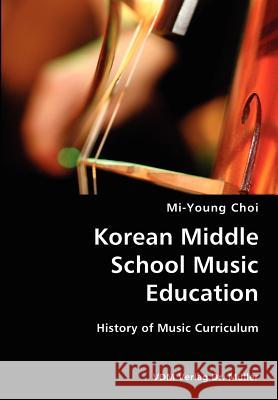Korean Middle » książka
Korean Middle
ISBN-13: 9783836422505 / Angielski / Miękka / 2007 / 200 str.
Music education does not exist independently; it exists in a social context. The author sheds light on political, economic, sociological and cultural influences on the history of Korean middle school music education between the years of 1945 and 2005. This book divides the history of Korean school music curriculum into four periods: (1) Immediate Post War Period (1945-1960); (2) National Development (1960-1979); (3) Stability Period (1980-1987); and (4) Towards the 21st Century (1988-2005). Each period is contextualized along political and socioeconomic lines, and includes a thorough discussion on the musical philosophies and repertoire used in the specific time frames. Adding a vivid dimension to the school music experiences across time, the book is also analyzed the content of schools songs contained in textbooks. Music educators should be responsive to this issue, and the book discusses some interesting issues that are relevant to musicians from different parts of the world.
Music education does not exist independently; it exists in a social context. Theauthor sheds light on political, economic, sociological and cultural influenceson the history of Korean middle school music education between the years of1945 and 2005. This book divides the history of Korean school musiccurriculum into four periods: (1) Immediate Post War Period (1945-1960); (2)National Development (1960-1979); (3) Stability Period (1980-1987); and (4)Towards the 21st Century (1988-2005). Each period is contextualized alongpolitical and socioeconomic lines, and includes a thorough discussion on themusical philosophies and repertoire used in the specific time frames. Addinga vivid dimension to the school music experiences across time, the book isalso analyzed the content of schools songs contained in textbooks. Musiceducators should be responsive to this issue, and the book discusses someinteresting issues that are relevant to musicians from different parts of theworld.











